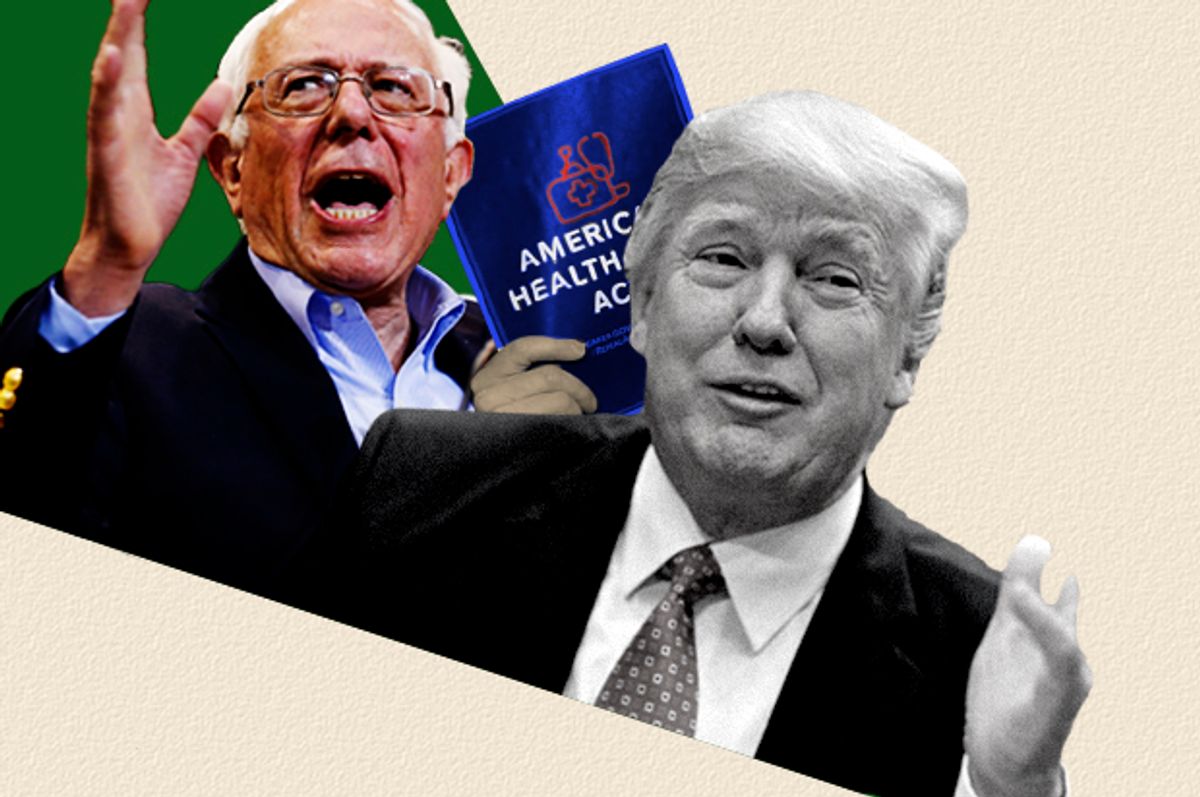The Republican replacement plan for Obamacare, which the Congressional Budget Office has now projected will cause 24 million people to lose their health insurance over the next 10 years, is so awe-inspiringly bad that it has managed to unite people from across the ideological spectrum in opposition, while provoking an intense backlash from the country’s largest physician and hospital groups.
The American Healthcare Act — informally known as Trumpcare — has something in it for everyone to hate. For hospitals it means a decline in insured (that is paying) patients. For young people it means a bigger penalty for a lapse in coverage. For older people it promises a sharp increase in premiums. And for poor and working-class Americans it signals a return to the bad old days of unaffordable health insurance.
Of course, there is one segment of the population that stands to benefit from Trumpcare. The AHCA would give the richest Americans a generous tax cut, leaving the wealthiest households in America paying an average of nearly $200,000 less in annual taxes (offset by the benefit cuts to working-class and middle-class families). This shameless handout to the rich even prompted right-wing Fox News host Tucker Carlson to criticize the AHCA during an interview with House Speaker Paul Ryan last week:
It’s kind of a hard sell to say, "We are going to repeal Obamacare, but we are going to send more money to the people who have gotten the richest over the last 10 years."That’s what this does, no? I am not a leftist; that’s just true.
Besides arousing fierce political opposition, the unveiling of Trumpcare has also reignited a familiar debate over whether a person living in the wealthiest country in the world has a basic right to health care. In the rest of the developed world, where universal health care has long been the norm, this debate was resolved decades ago. And since President Harry Truman first proposed universal health care in 1945, American liberals have similarly regarded health care as a fundamental human right. As Sen. Bernie Sanders recently tweeted: “The wealthy don't deserve health care more than anyone else. Everyone should be guaranteed health care regardless of their income.”
Conservatives obviously
Most Republican politicians want to avoid coming across as heartless plutocrats who hate the poor, of course, and at the very least have to pretend to care about the 24 million to 26 million people who are projected to lose their health insurance with Trumpcare. And so they engage in apologetics — promoting false narratives, littering their speeches with stale platitudes and euphemisms, parroting all but meaningless words like “freedom” and “liberty” and “competition.”
Consider Rep. Mike Burgess, R-Texas, who tried to spin the idea of people losing their health insurance into a net positive last month: “If the numbers drop, I would say that's a good thing, because we've restored personal liberty in this country, and I'm always for that.” Or Rep. Roger Marshall, R-Kan., who employed the individual responsibility trope last week while arguing that poor people “just don’t want health care and aren’t going to take care of themselves.”
Personal liberty, competition, economic growth, states’ rights, individual responsibility —there is no shortage of hackneyed terms and ideological rationalizations that can be used to justify the GOP’s agenda, which ultimately amounts to enriching their wealthy donors and punishing the poor.
Attempts to spin Trumpcare and the real human suffering it will cause into a restoration of abstract things like personal liberty and economic growth brings to mind the famous words of George Orwell in his great essay “Politics and the English Language”:
Political language . . . is designed to make lies sound truthful and murder respectable, and to give an appearance of solidity to pure wind.
In the wake of the Congressional Budget Office's report, selling Trumpcare as anything other than a massive handout to the rich at the expense of the health of the American people has become a very complicated task — even for Republicans who have long thrived at defending the indefensible.
For eight years Obamacare has been a bête noire for conservatives, and “repeal and replace” was an enormously effective campaign slogan. But now House Speaker Paul Ryan and Donald Trump are burdened with the business of actually governing, and nearly 6 in 10 of those Americans who actually support repealing Obamacare want it replaced with an even more progressive single-payer system, according to a recent Gallup survey (while only 22 percent those polled who said they favor repeal do not want a federally funded replacement). One wonders how many of these people took President Trump literally and seriously when he promised that his health care plan would cover everybody.
While promising everything to everyone can be a winning strategy in politics, it inevitably makes for an awkward re-election campaign when one fails to deliver. Telling voters who lose their health insurance that their personal liberty has been restored is unlikely to prove effective.



Shares